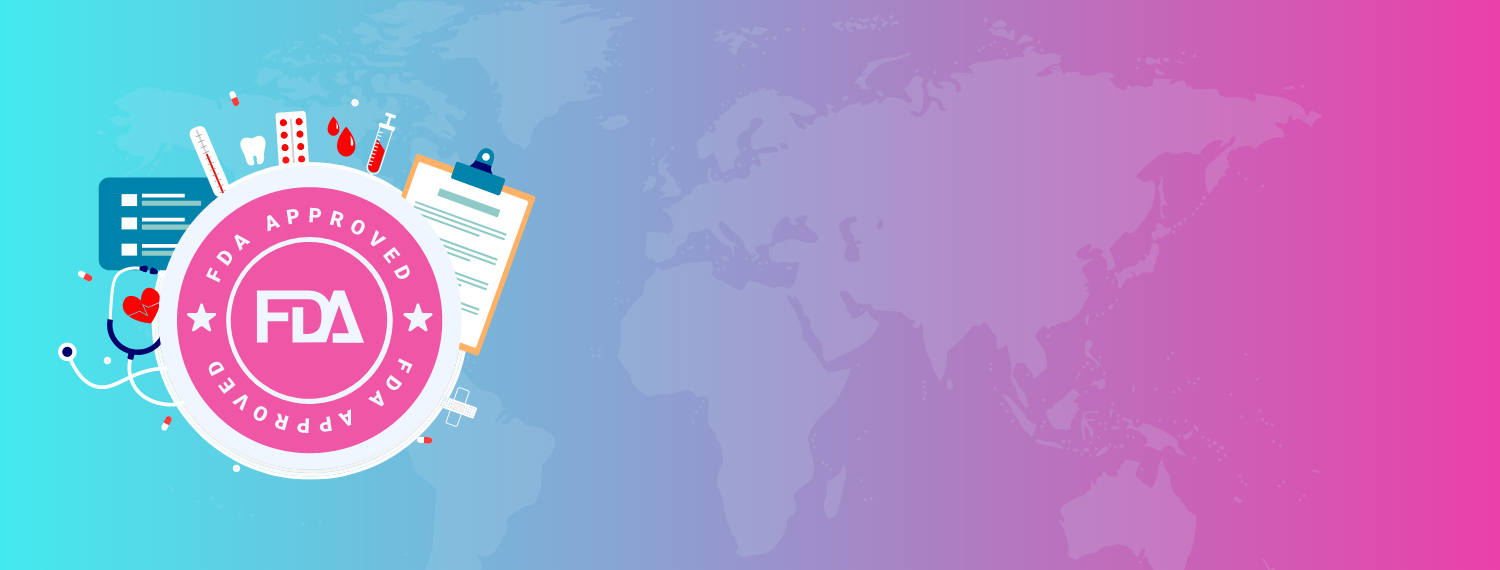When it comes to achieving effective Food and Drug Administration (FDA) inspection results, proper planning is the key to it. Inadequate FDA inspections might have a long-term impact on a company’s strategic plan.
Applying the correct tools and strategy can considerably improve the likelihood of the inspection process running as smoothly as possible. In this blog we will explore a few basic but effective techniques that help in preparation for FDA inspection.
Different types of inspection process of the FDA:
The FDA has usually three types of inspection processes, which are as follows:
- Pre-approval or Approval Process – Inspection is conducted when an above-mentioned industry or facility submits an application for FDA registration to launch their new product.
- Routine inspection is done periodically to thoroughly check the industries and facilities are in compliance with FDA regulations.
- For-Cause inspection is conducted if the FDA notices any serious problem that needs urgent attention and investigation.
Documents required for FDA approval process:
The Food and Drug Administration (FDA) registration needs documents for the approval process. The FDA registration requirement for documents will vary for each industrial facility.
- Food Certification – FDA registration for food products is not done and no certifications are required for distribution. But, FDA registrations for food facilities are mandatory. Inspection is conducted in the facilities that must be following the FDA food facility requirements for registration. The documents of the equipment purchased, raw materials used, and maintenance of the safety in the plant are monitored.
- Drug Safety – For any new drug to be released in the market, FDA registration for drugs depends upon the Over The Counter (OTC) monograph. The OTC monographs are designed as per the FDA requirements, hence no separate FDA registration for drugs is necessary. If any drug development process or the new drug does not possess the OTC monograph, then FDA registration is required to comply with the FDA regulations. The approval process for FDA registration requires laboratory, veterinary, and human clinical trials data and mandatory inspection by FDA officials.
- Medical Devices – FDA categorizes the medical devices into three classes, which are Class I, Class II, and Class III. The first two classes, Class I, and Class II are FDA registration exemptions, but these categories of medical devices need to submit premarket notification 510(k) under the FD&C Act, which is a mark of safety and efficacy, to the FDA. After that, marketing approval is obtained. But FDA registration for medical devices of the Class III category needs to go through the approval process. During FDA inspection, demonstrations of medical devices are conducted until safety and efficacy are assured. Also, device establishments and manufacturers must get FDA establishment registration and device listing.
- Cosmetics – FDA registration for cosmetics is not necessary in most cases, but if it contains color additives or the labeling claims to have a certain effect, then it has to go through the FDA approval process because in that case the product is considered as a drug. In those cases, the process of inspection will be similar to the FDA registration for drugs. We will discuss the color additives in the upcoming part.
- Color additives – FDA registration for color additives is mandatory. The color additives used in other industries, such as the food and pharmaceutical industries, medical device establishments, and cosmetics industries, must be in compliance with FDA requirements for safety. The color batch certification by FDA is mandatory for a specific range of high-risk colors. The documents required for compliance are the test reports of the chemicals that the manufacturers use. Officials from the FDA visit for inspection and categorizes the risk ratings and safety measures of the color additives.
Here are few common tips for FDA inspection to be followed:
For smooth conduct of FDA inspection, here are some common tips that you may follow. FDA registration consultants can assist you with the whole process of FDA registration.
- Be polite with the investigating officers.
- Answer the questions asked by the investigating officers confidently.
- If any hindrance arises, have clear communication.
- Make separate folders for the documents containing procedures, system manuals, quality control reports, and documents related to the organization for FDA drug establishment registration, FDA food facility registration, and medical device establishment registration.
- Include marketing labels that have the necessary information during the inspection, this portrays clarity.
- Make a report of complaints reported and the measures implemented from your side for it and submit it to the FDA officials.
- Contact FDA registration consultants for a better and hassle-free investigation process.
The common mistakes in FDA registration that one must avoid:
- Don’t be nervous. Maintain your body language and be confident.
- Do not get involved in arguments with the inspection officers. Be humble and polite.
- Don’t try to hide anything. Admit honestly the shortcomings before.
- Do not misplace your documents. Arrange the documents carefully to show the officials instantly.
The FDA registration process requires proper knowledge. For the pharmaceutical industries, due to drug safety complying with FDA regulations are mandatory. The importance of FDA registration is necessary for the safety of animals, human beings, and the environment.
Global Pharma Tek actively works as the agent for the FDA approval process for pharmaceutical industries. We are active in assisting with FDA drug establishment registration and FDA registration for medical devices.

